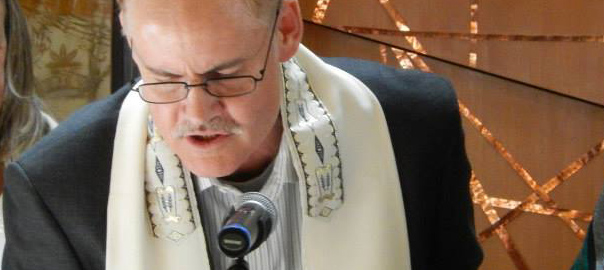Adult B’nei Mitzvah Class of 2014: Jack Elliott

When first coming across the concept of ‘sanctuary cities’, I was a bit disappointed. It addressed manslaughter/lack of intent type cases with a ‘cooling off’ approach. I was expecting something a little more profound from Torah – perhaps a King Solomon type pronouncement that wowed the whole community. Instead, it sounded more like my parents sending both my sister and me off to our rooms after a scuffle until we had forgotten what she’d done to me. I’ve since come to appreciate the wisdom of sanctuary cities – where impassioned people, dealing with real life issues, are either demanding a pound of flesh – or hoping to retain that flesh – depending on which side of the issue they fall. More recently, I’ve also realized that the concept of these cities offers me a paradigm to grasp an issue I’ve felt impassioned about, but had neither the courage nor means to address.
The summer of my seventeenth year I found myself with a high school diploma and – together with my coworkers – a shovel, as we spent our days in manual labor preparing for and dismantling forms to pour concrete. The dirt on my body and physical exertion I eventually became used to, but the boredom I never did – which led me by September to reconsider my previous decision never to set foot in a classroom again. My coworkers, however, didn’t seem to have this option, though in many ways they were like the kids I’d grown up and played with. Over my time working I became at first curious and then appalled at another difference – the treatment we received in terms of pay practices, as well as in the aftermath of an accident resulting from a snapped cable. These differences arose from our different legal statuses, and moves me to speak today.
There is, of course, ongoing political discussions regarding US migration policy – something which is appropriate but not my concern here. Rather, I wish to point out that while these discussions are taking place, undocumented workers – those who toil to help provide all of us with such essentials as food and shelter – are not legally entitled to the same minimal labor standards the rest of us enjoy – be they worker’s compensation insurance, overtime pay, work breaks, social security, unemployment insurance, OSHA protections and the like. Worse yet, unscrupulous employers are empowered to create an economic slave labor sub-class, enforced through such threats as withholding previously earned wages and INS deportation – not idle threats.
While there have been successes on the fringes to ameliorate this situation (for example, California’s expansions of drivers’ licenses), this sub-labor class is effectively codified in and enforced through our legal system. I propose that, as citizens, we have culpability in these laws and their effect. I further suggest that our Torah cries out against this status quo – be in terms of supporting the less powerful in dealing with those more powerful, the injunction to have the same laws for the stranger as native born, as well as laborers receiving their wages at the end of each day, to the most basic – loving thy neighbor as thyself.
I am no longer seventeen – obviously. In the intervening years, political talk has continued but our society still denies a segment of our population what we consider minimal labor standards. This is not entirely surprising, as we benefit materially from these laws – the fruits of other’s labor (exploited fruits). But it is also not consistent in a society where justice, justice is pursued. It invites us to take a stand.
Our Torah parsha has challenged me to think about how we treat undocumented workers. Work can be a wonderful undertaking, something we are in fact directed to do six days a week. But, like everything else, it is profaned unless we remember that each of us is created in the image and likeness of the Holy One. By treating undocumented workers as such, we are building a sanctuary – a place where the Holy One may dwell among us. I invite each of you to join me in exploring avenues addressing this issue, ranging from how we treat hired labor in our private lives (for example, gardeners and domestic workers), to effecting legal labor reforms. One local group active in this area is CLUE – an acronym for Clergy and Laity United for Economic Justice. I’ve placed a flyer about this organization in the lobby for anyone interested. May the day come soon when justice reigns throughout the land. Shabbat Shalom.




